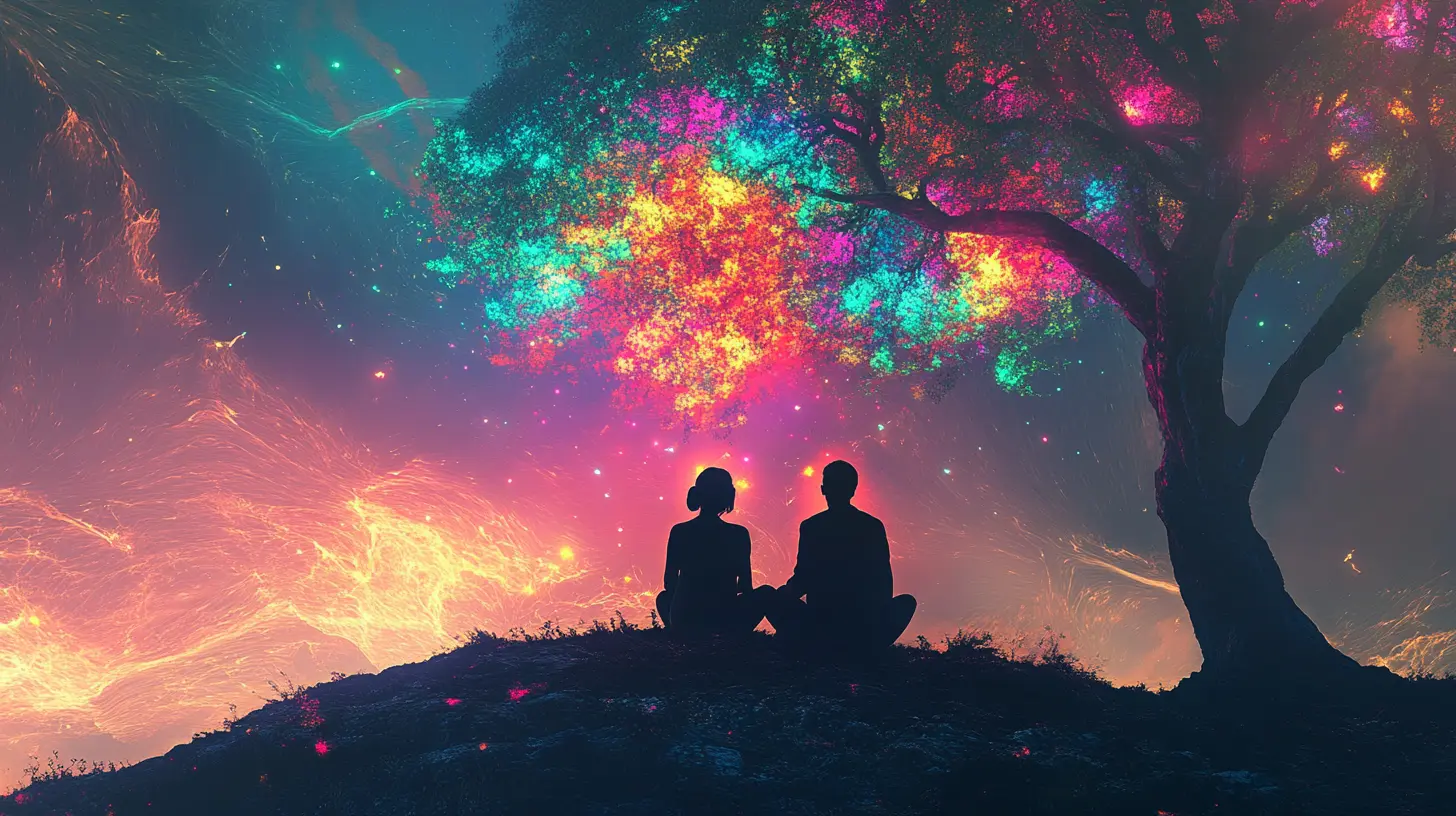No one hands you a “How to be an Adult” manual.
Yet, we somehow assume everyone else has a secret playbook—flawlessly balancing careers, friendships, and mental peace.
If you’ve ever wondered, “Am I the only one constantly messing this up?”, you’re not.
Here are ten everyday struggles that feel like personal defects but are actually universal—woven into the fabric of modern life.
1. Feeling Like Everyone Secretly Dislikes You#

You leave a get-together and dissect every word you said. Did you overshare? Make a cringey joke? You see a friend’s “seen” status with no reply and assume they’re ignoring you.
Why It’s Not Just You
- We’re social creatures, wired to worry about belonging and approval.
- Today’s fast-but-fragmented communication only amplifies that worry.
The result? Overthinking every pause, every “lol,” every late reply. It’s less about the internet being evil and more about how quickly and often we seek validation.
2. Feeling Out of Sync with Your Own Family#
Your life moves at meme-speed: notifications, group chats, and 5-minute delivery services. Your parents or relatives might still prefer long phone calls, slower decision-making, or family meetups.
Why It Feels Personal
- You think you’re impatient or “too modern.”
- You worry you’re losing touch with tradition or family closeness.
But this friction isn’t “your” fault or “their” fault. It’s the natural tension of one family, multiple generations—each navigating shifting cultural norms.
3. Unsure If You’re Thriving or Just Surviving#

One day, you’re super-driven. The next, you’re exhausted after scrolling random videos for hours. Are you failing? Or is this just what life looks like right now?
Why It’s Universal
- Hustle culture tells you to be always-on.
- Constant updates from friends and idols make you feel you should be doing more.
Yet most people are in the same boat: doing the best they can, sometimes losing momentum. There’s no single yardstick for success when everything keeps shifting.
4. Losing Touch with Friends and Blaming Yourself#
You once spoke every day; now, it’s “like” and “react” here and there. You wonder if you’re the problem—too distant, too busy, or too forgetful.
What’s Really Happening
- Everyone’s juggling jobs, relationships, mental health.
- Free time gets carved into tiny slices.
This drift is normal—not a sign you’re a bad friend. Staying close requires effort on both sides, and sometimes life just pulls people in different directions.
5. Feeling Like You’re Falling Behind While Everyone Else Speeds Ahead#

Your feed is flooded with milestones: new degrees, new jobs, engagements, big moves abroad. Meanwhile, you’re still figuring out tomorrow’s lunch plan.
Why It’s Not Just You
- Social media highlights success stories.
- Offline communities (family, friends) often amplify who’s winning at what.
Yet nobody sees the grunt work, the in-between phases, the rejections. So if you feel stuck, remember: no one’s life is as linear or perfect as their highlight reel suggests.
6. Feeling Emotionally Numb and Wondering If You’re ‘Broken’#
You remember a time when a movie scene or a good song moved you to tears. Now you feel…flat.
Cause? It’s Complex.
- We’re dealing with a 24/7 news cycle of crises.
- Daily life can overload your emotional bandwidth.
When your brain can’t keep up, it disconnects for self-preservation. That numbness might just be a timeout, not a permanent shutdown.
7. Realizing You Don’t Know Who You Are Without the Internet#

It’s not that the internet “stole your soul.” It’s that we’ve grown up online, absorbing so many ideas, trends, and opinions.
Why It’s a Group Struggle
- Our generation never truly had a line between offline and online worlds.
- Digital culture shapes music taste, humor, activism, and daily routines.
That sense of “Wait, who am I, actually?” isn’t a glitch—it’s a byproduct of living partly in a physical world and partly in a digital one.
8. Feeling Too Young to Be This Tired#
So many of us need days to recover from a single outing, or feel physically drained by the simplest adult tasks.
Modern Life Fatigue
- We juggle work, school, side projects, social media, and family.
- Our brains process an avalanche of information daily—it’s natural to hit energy limits.
This isn’t “bad parenting” or “evil phones.” It’s the sheer volume and pace we’re living at.
9. Struggling to Be Proud of Yourself#
You set a goal, achieve it—then immediately downplay it. “Anyone could do that,” you tell yourself.
Why We Downplay Wins
- We compare ourselves to “bigger” successes.
- Productivity culture teaches us to keep pushing, never stopping to celebrate.
But here’s a newsflash: Celebrating small wins is fuel for your next move. If you never acknowledge progress, you’ll burn out in self-criticism.
10. Feeling Disconnected from Your Own Life#
It’s like you’re watching your life instead of living it—going through the motions, but without emotional presence.
The Dissociation Dilemma
- Could be a coping mechanism for stress overload.
- Happens when you’re physically there but mentally “tuned out” to handle constant stimuli.
This isn’t you failing at adulthood; it’s your mind shielding itself until it feels safe to re-engage.
Conclusion#
“Is it just me?” is the most common question nobody dares to ask.
But the truth? It’s not just you.
What feels like a personal flaw—lost friendships, self-doubt, burnout—is often the result of trying to navigate a world moving faster than ever.
It’s not about blaming society, technology, or culture, but about recognizing the shared challenges we’re all facing and learning how to adapt with purpose and kindness toward ourselves.
The Phir Se Mindset:
- Rediscover connection in places where you feel disconnected.
- Reframe struggles as moments to learn, not signs of failure.
- Rebuild habits, relationships, and routines that feel meaningful—whether online or offline.
These struggles don’t define you. They’re reminders that growth isn’t about always having the answers; it’s about asking the right questions and making room to rediscover what matters most.
📌 FAQs
What if I feel all these things at once?
Is this all just ‘we grew up too fast, blame tech’?
How can I reconnect with friends I’ve drifted from?
Keep it simple:
- Send a casual “How’re you doing?” text.
- Suggest a quick call or coffee.
- Give them space if they’re busy, but show genuine interest.
Drift often happens unintentionally, so any honest effort can help close the gap.
